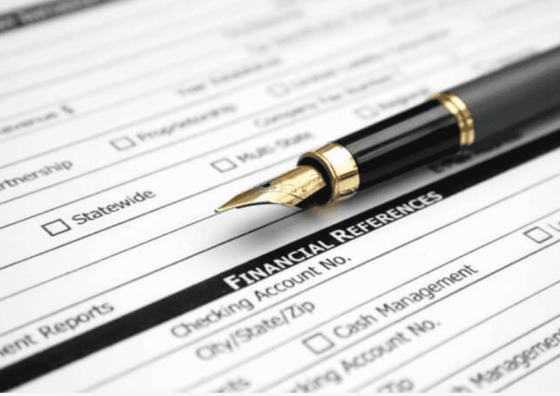What do Michael Jordan and Jeff Bezos have in common? They both invest in appreciating assets!
There are many reasons to invest in such assets — they can provide a hedge against inflation, and they can help you build wealth.
If you’re interested in investing in assets, here’s everything you need to know.
What Is Appreciation?
Appreciation is the increase in the value of an asset over time. Many factors can contribute to appreciation, such as economic conditions, supply and demand, and improvements to the asset.
One of the most important things to consider when investing in assets is your time horizon. If you’re looking to invest for the long term, you’ll want to choose assets that have a history of appreciating over time.
How to Calculate Appreciation
To calculate the appreciation of an asset, you can use the appreciation calculator, or you can calculate it manually.
Suppose your home was worth $248,857 (the median price of a house in the US) when you purchased it and is now worth $300,000.
To figure out how much the home has appreciated, subtract the starting value of $248,857 from the final value of $300,000. If you did your math right, you’d end up with $51,143.
This means that your home has appreciated $51,143 since you purchased it.
To turn that number into a percentage, use the appreciation formula. Start by dividing $51,143 by $248,857. You’ll get 0.2055. Now, multiply that number by 100 to discover that the cost of your house has risen by 20.55%.
While this simple formula will help you see how much your home has increased in value, you can perform more complex analyses, such as your house appreciation rate percentage. These will really give you insight into where you stand with your investment.
Appreciation and Taxes
Only capital assets, such as collections, bonds, real estate, stocks, or jewelry, are subject to the capital gains tax under the US federal tax policy. For most people, the tax rate on their net capital gain is no more than 15%.
However, there are some exceptions:
- Small business stocks are taxed at a maximum 28% rate.
- Collectibles (such as rare coins or art pieces) sold for a profit are taxed at a maximum rate of 28%.
- The maximum taxable rate for real property is 25%.
4 Fine Assets That Appreciate in Value
Here is our list of assets with the potential to increase their worth over time.
Real Estate
In real estate, appreciation is defined as the increase in value of a property due to market conditions or other factors.
Real estate is a time-tested appreciating asset. If we look at the historical data on appreciation in real estate, we can see that home prices in the US have more than doubled since the early 1960s.
Furthermore, despite the prospect of higher mortgage rates, for-sale property values are anticipated to go up by 11% in 2022, according to Zillow’s research.
And based on the National Association of Realtors‘ predictions, the vacancy rate will continue to decline in 2022, reaching 4.8% (from 5.1% in 2021).
If you want to invest in real estate, these five real estate markets show exceptional growth potential:
- Nashville, Tennessee
- Raleigh/Durham, North Carolina
- Phoenix, Arizona
- Austin, Texas
- Tampa-St. Petersburg, Florida.
You can choose to invest in commercial real estate or REITs. You can also rent your house on sites like Airbnb.
Bonds
Bonds are maybe one of the best appreciating assets in 2022 because they typically offer a fixed rate of return, which means you know exactly how much money you will get back when the bond matures.
In addition, unlike stocks, which are often volatile, bonds are considered safe investments since they are backed by the issuing government.
How do bonds appreciate in value?
A bond’s value appreciates as the bond’s interest rate decreases.
For example, if you buy a bond with an interest rate of 6% and the market interest rates decrease to 5%, the value of your bond will increase.
I.e., when you sell the bond, someone else will be willing to pay more for it since they can get a lower interest rate by buying your bond.
Works of Art
If you’re looking for hobbies that involve appreciating assets, you should consider investing in art. However, it’s important to do your research before investing in art, as some genres of art appreciate more than others.
For example, impressionist and post-impressionist works are some of the most popular and expensive paintings in the world. A painting by Claude Monet called “Nympheas” was sold for $43,76 million at an auction by Christie’s.
Here are a few things to keep in mind when investing in art:
- Rarity: this is one of the most important factors when discussing things that appreciate in value such as artwork. The rarer the piece of art, the more valuable it is likely to be.
- Notoriety: pieces of art that are associated with a famous artist or that have been featured in major exhibitions are also more valuable.
- Authenticity: it’s important to make sure that the piece of art you’re buying is genuine.
- Condition: the condition of the piece will also affect its value.
Yieldstreet and Masterworks are two popular platforms that allow you to invest in art. Yieldstreet offers various investment opportunities, including art, real estate, and venture capital.
Masterworks allows you to buy shares of paintings by famous artists like Pablo Picasso and Andy Warhol.
Both platforms require a minimum investment of $500.
Cryptocurrencies
It’s debatable whether cryptocurrencies should even be considered an asset, let alone an appreciating asset. This is, of course, due to their volatile nature.
Nevertheless, the market cap of over forty digital currencies is above $1 billion — and that makes these items that appreciate in value extremely tempting in terms of investments.
So, if you’re interested in investing in an asset with great appreciation potential and are willing to take the risk, crypto might just be the right choice for you.
Do your research, though, and choose a coin that will potentially be valued much more in the coming years.
Conclusion
Now that you know all about assets that don’t depreciate, it’s time to start investing. Remember to diversify your portfolio to minimize risk, and always do your research before investing in anything.
FAQs
What are examples of appreciating assets?
Some examples of assets that have the potential to appreciate include:
- Real estate
- Bonds
- Art
- Stocks
- Commodities
- Precious metals
- Cryptocurrencies.
What assets are worth buying?
If you’re looking for stability, you might consider investing in bonds. Bond prices don’t fluctuate as much as stock prices, i.e., they provide a steadier return.
On the other hand, if you’re looking to make a lot of money quickly, you might want to invest in real estate. Prices of homes and other property can go up rapidly, providing you with a significant return on your investment.
What assets go up in value over time?
Assets, like bonds and real estate, tend to appreciate over time. This means that their prices generally go up, providing you with a larger return on your investment.
When deciding what assets to invest in, you should consider your goals and the amount of risk you are willing to take. Ultimately, it’s up to you to decide which appreciating assets are worth investing in.






